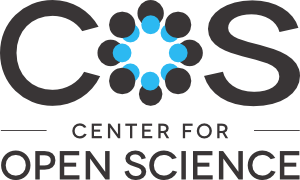 As our readers know, one of the goals of our work at Retraction Watch is to create a free, comprehensive database of retractions. That effort is generously funded by The John D. and Catherine T. MacArthur Foundation and The Laura and John Arnold Foundation.
As our readers know, one of the goals of our work at Retraction Watch is to create a free, comprehensive database of retractions. That effort is generously funded by The John D. and Catherine T. MacArthur Foundation and The Laura and John Arnold Foundation.
Today, we’re excited to announce that our parent organization, The Center For Scientific Integrity (CSI), has partnered with The Center For Open Science (COS) to create that database on the Open Science Framework (OSF).
It’s a natural collaboration, says Retraction Watch co-founder and CSI executive director Ivan Oransky:
The Center for Open Science is an internationally recognized standard-bearer for open science and reproducibility. It’s natural that we would select their platform to create a database of retractions designed to reduce waste in science and allow scholars to study the scientific literature in order to promote scientific integrity. We’re delighted to partner with them on this important project, and to contribute to the OSF.
Here’s how it will work, according to a joint news release we issued today with the COS:
COS builds and maintains the Open Science Framework (OSF), a free, open-source web application designed to support researchers in project management, sharing, and archiving with the goal of making scientific research more transparent and reproducible.
Together, COS and CSI will develop the technical infrastructure needed to support existing and new Retraction Watch content on the OSF. Further, COS will enhance discoverability and brand awareness by integrating this content into the SHARE Notify (http://osf.io/share) system, a searchable database of over 3 million research-related events, and by associating Retraction Watch content with related article DOIs when possible. With the technical support of COS, CSI can focus on delivering new content and developing new audiences that can make more informed decisions based on accurate research outputs.
We’re excited to develop this resource, which we believe will become vital to the research community. We will keep you posted on our progress.
Read more about our new partnership here.
Like Retraction Watch? Consider making a tax-deductible contribution to support our growth. You can also follow us on Twitter, like us on Facebook, add us to your RSS reader, and sign up on our homepage for an email every time there’s a new post. Click here to review our Comments Policy.
This is terrific! Are you developing this in such a way that journals can run citation checks on new papers before they are published? As an ex-EIC of a journal, I have been dismayed to see retracted papers continue to garner citations for years after the retraction.
Thanks! Yes, editors will certainly be able to do that by hand, but the goal is to have an API that makes it more automated.
Hi Ivan,
We are thrilled to hear this–we heard you at the AMWA conference and thought the database would be some time in coming. Kudos and can’t wait to see it up and running.
Mary Kay Stein, MD Communications, Albuquerque
Great news indeed! Congratulations!
Does that mean that you’ll be adding to this database a large number of retractions that don’t warrant a blog post? Or will your only additions include those that are significant or interesting enough to warrant a blog post?
The database will be as comprehensive as possible; there will be an entry with metadata for all retractions, and if we’ve covered them, the entries will contain our posts.
This is great news, indeed.
One question/plea: RW has done a marvellous job of identifying sub-optimal research practices across the full range of research fields; OSF has a slightly narrower goal – “making scientific research more transparent and reproducible.” I hope the RW input into the new database won’t be confined to any narrow definition of ‘science’.
BTW, RW was a constant of source of reference at a symposium in Canberra yesterday hosted by the Australian Publishers Association on “Enhancing the quality and sustainability of Australian research.”
This is long overdue. Well done. You are doing more than any other body to improve the integrity of science.
How does The Center for Scientific Integrity and Retraction Watch plan to trace, and record, silent retractions*, and will these form part of the retraction database?
* Teixeira da Silva, J.A. (2016) Silent or stealth retractions, the dangerous voices of the unknown, deleted literature. Publishing Research Quarterly 32(1): 44-53.
http://link.springer.com/article/10.1007%2Fs12109-015-9439-y
DOI: 10.1007/s12109-015-9439-y
How is this project going? Is there a beta version yet? What would be a huge deal for scientific journalism is if there were a retraction database that can notify subscribers of the eventual retraction of a specific publication. A lot of studies make the headlines of mass media, and it would be a nice tool if one could enter some publication id into the database, and get a notification if that particular publication gets retracted.